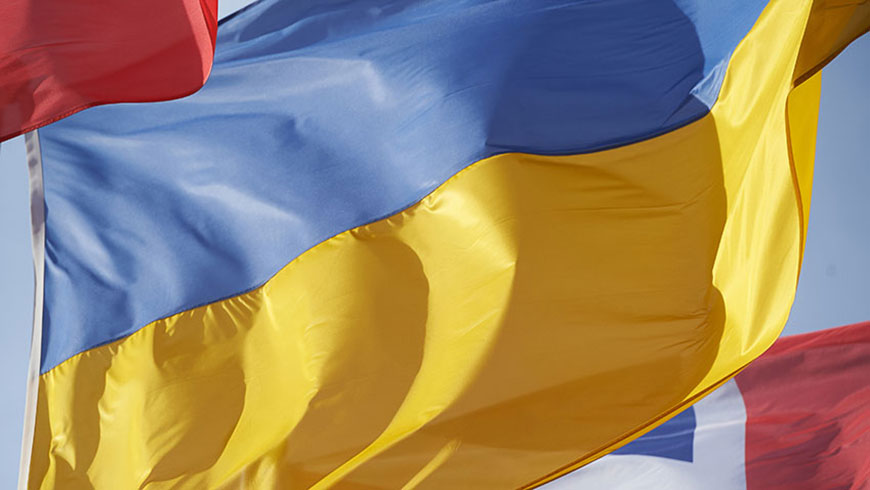Members of the Council of Europe’s Advisory Committee on the Framework Convention for the Protection of National Minorities met with representatives of national minorities and other stakeholders from Ukraine and reported back to the committee during their plenary meeting last week. Appalled by the Russian Federation’s aggression against Ukraine, which it condemned in the strongest terms, the Advisory Committee strives to follow closely its impact on persons belonging to national minorities. Amidst power outages due to attacks on energy infrastructure, online meetings were held with some 30 minority representatives as well as researchers, the Parliamentary Ombudsman’s Office and the State Agency for Ethnic Policy and Freedom of Conscience on 21-22 November.
The fight for survival and coping with basic humanitarian needs was mentioned as the biggest challenge. The killing and injury of civilians and the destruction of civilian infrastructure such as residential buildings, hospitals and schools have affected everyone in Ukraine, and persons belonging to national minorities are no exception to this. Among the many national minorities present in the most affected Eastern and Southern regions of the country, Azov Greeks as well as Ukraine’s indigenous peoples (Crimean Tatars, Karaites and Krymchaks) were highlighted as particularly at risk, including in the territories under temporary Russian occupation. Many of these were reported as being affected as groups, with persons belonging to them now living mostly abroad and their cultural heritage destroyed. Countless buildings and monuments of cultural significance for persons belonging to national minorities across Ukraine have been damaged or destroyed. Education in and of minority languages is hard to maintain amid destroyed school buildings, the internal displacement of teachers and pupils, the constant risk of shelling and online education interrupted by power outages. Additionally, persons belonging to national minorities are among the millions of Ukraine’s refugees now living in other states.
Despite efforts undertaken by the authorities and the Ombudsman and positive examples of solidarity, Roma are in an extremely vulnerable situation and their already precarious situation in access to social services, housing and education has deteriorated. Roma IDPs particularly faced difficulties finding accommodation in other parts of the country. The closure of local schools and difficulties in accessing remote education affects Roma disproportionally, a situation likely to further increase the gaps already apparent during the Covid-19 pandemic. The lack of public funds earmarked for improving the humanitarian situation of Roma, including from international donors, was raised.
Minority representatives present at meetings with Advisory Committee independent experts agreed that the aggression has further united Ukraine’s multi-ethnic society. It was stressed that persons with a wide range of ethnic and religious affiliations fight in the Ukrainian army or otherwise contribute to defending their home country against the aggression. The Advisory Committee was also informed about current legislative and policy initiatives on minority and indigenous people’s rights and promoting intercultural understanding.
Reporting back to the Advisory Committee during its plenary meeting, members shared their admiration of the resilience of both the national minority representatives they talked to, as well as of the Ukrainian authorities and the Office of the Ombudsman in this dire situation. They expressed the need to involve in consultations persons belonging to all minority communities living in Ukraine. These consultations should also extend to the development of the important legal and policy documents with a view to building an inclusive post-conflict society.
Whereas the Advisory Committee concluded that regular monitoring of Ukraine’s implementation of the Framework Convention is not feasible in times of full-scale war, it agreed to continue following the situation closely.
Framework Convention for the Protection of National Minorities: News 2022

16/12/2022
- Diminuer la taille du texte
- Augmenter la taille du texte
- Imprimer la page
Contact
Secretariat of the Framework Convention for the Protection of National Minorities
Council of Europe
Agora Building
F - 67075 STRASBOURG CEDEX
France
Write to us


